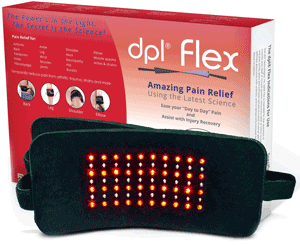If you make a habit of studying your acne, and you regularly record your observations in your trusty old acne journal, you might have noticed from time to time that you keep getting acne in the same place.
I’ve put together three quick points to help you try to diagnose and prevent recurring acne like this.
For me, it was a spot on the lower left side of my mouth, about an inch from the corner of my lips. Frustratingly, one of the most noticeable areas of skin.
This pimple would pop up, grow for a few days, then come to a nice squeezable head and heal up a few days later.
Come the next week, there would be a tender, pink lump where the old scar was, and within a 24 hours, the pimple would be back. In the exact same place!
Eventually, I realised what had been causing this recurring whitehead and so this first piece of advice comes from personal experience.
- DO NOT PICK IT!
Capitals can hardly do this point sufficient justice. Please therefore take it upon yourself to shout that out loud, in order to reinforce the idea that picking a pimple, or worse still, a cyst, is NEVER a good idea.
You’ll probably notice that you get acne in the exact same spot, just a few days or weeks after the first pimple you picked has healed. And then once you’ve picked at the new spot, up crops another one just a couple of weeks later – in the same place again.
This is a repeating cycle and it’s because of that initial picking.
Picking at a spot damages the very fragile structures that exist in your skin. It may surprise you to learn that each square inch of skin contains about:
- Three layers of skin
- 650 sweat glands
- 90 oil glands
- 20 blood vessels
- Over 1,000 nerve endings
- Up to 65 hair follicles
- 19 million (!) skin cells
- Anywhere from 50 to 500 million bacterial cells
I want you to think about these facts next time you pick at a spot. Every time you dig away at a zit, your clumsy fingers are smushing together all of the above into one huge aggravated mess.
By squeezing your skin to get the pus out of a whitehead, you are literally crushing up to 500 million bacterial cells into all of the sweat glands, pores and oil glands on the surface of your skin.
You are literally exploding your skin cells with such pressure that their internal liquids leak out all over your face.
Does that sound conducive to clear, blemish-free skin?
Of course not.
The number one, main, undeniable reason that spots keep appearing in the same patch of skin is because you just don’t let them heal up by themselves.
The damage you cause by picking (even when you think you’re being gentle and hygienic) is immense at the scale of a pore.
The ruptured pore will be mashed beyond recognition and severely swollen, making it much more likely that it will keep getting blocked in future. And if you pick at it a second time, you’re compounding this damage.
Although I’ve been as guilty as anyone of squeezing a pimple because it looked unsightly, it really doesn’t matter how “ready” that whitehead looks, it is always best left alone.
And think about it, would you rather have one whitehead go unsqueezed for a couple days and then heal itself, never to return – or a never-ending series of whiteheads because you keep picking at them?!
- Ask yourself: What is touching that spot?
If you’re a good little boy who wouldn’t dream of picking a pimple, it’s clear that something else must be causing that recurring acne.
So have a think about anything which might be frequently coming into contact with the affected patch of skin and either eliminate it or make it as hygienic as possible.
Here’s a few examples to start you off:
- Hair. This is a common one for those with forehead acne which just won’t clear up. Do you have long hair, especially forehead bangs? Do you use hair products like wax and gel which melt during the day, slide down your forehead and clog up your pores? If you’re lucky like me, my forehead is expanding almost by the hour and my hairline is now sufficiently far away from my forehead that it doesn’t cause problems… If so, keep your hair clean, don’t use heavy products in it and ideally, cut it nice and short.
- Pillow. How often do you clean your pillowcase? If you keep getting acne on one side of your face, and it happens to be the side you sleep on, then make sure you sleep on clean material every night. If you don’t have enough pillowcases, use a fresh soft towel each day.
- Sports equipment. Do you have to wear a helmet for sports, with an irritating/dirty/sweat-infused chin strap? Do you wear one of those stupid headbands because you have hair like a teenage girl and it gets in your eyes during soccer? Cycling helmets are also notoriously irritating so consider regularly detaching and washing the chin strap on these.
- Fingers. I’ve noticed there’s a guy at my work who has occasional acne around his mouth. He also sits at his desk resting his chin on his hand, and with his fingers resting on his lips. Coincidence? No. Try to notice any subconscious habits like this and keep your hands away from your skin.
- Cell phones. In a similar way, one of the grimiest, oiliest and most bacteria-ridden surfaces in your vicinity right now is your smartphone screen. If you spend some time talking on your phone and smearing it up and down your cheek, it’s possible that you’re transferring this bacteria to your acne-prone skin and causing breakouts. Either hold your phone away from your face or better yet, wipe over the screen on a regular basis.
- Oral hygiene
Last but not least, if you get acne around your mouth (otherwise known as perioral acne) consider whether your oral hygiene is quite up to scratch.
If you’re not brushing, flossing and rinsing for at least two minutes twice a day, the build-up of bacteria in your oral cavity can easily spill out and cause pimples around your mouth.
Besides, your breath probably ain’t so fresh either, and as I’ve said before when you’re dealing with acne you should still make sure every other aspect of your appearance is impeccable.
This is especially important at night time, since you will almost certainly drool in your sleep and then roll over into it. Keeping your mouth free from bacteria is therefore especially important for acne sufferers.
And even if you do have an immaculate dental regimen, it’s worth thinking about the chemicals which are coming into contact with the skin around your mouth. These chemicals can also be transferred during your overnight drooling sessions.
For example, many toothpastes contain Sodium Lauryl Sulfate (SLS), a highly irritating ingredient. If you need an SLS-free replacement, look no further than Tom’s of Maine toothpaste, I use it myself now and it just feels less… chemical.
And mouthwashes can contain alcohol, which is incredibly drying to skin and can cause it to crack, leaving it vulnerable to infection by acne-causing bacteria from your phone, or pillow, or 1980s haircut.


